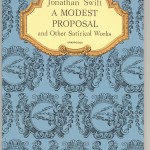 (In which I continue to reflect on Year 1 of the “private MFA.”)
(In which I continue to reflect on Year 1 of the “private MFA.”)
Have you submitted anything for publication?
Yes! And happily, it was accepted, by a kind editor with very encouraging words. I know this is not how submissions usually happen, but it helped. I will post more details when the piece comes out.
What writing projects are next?
Well, the memoir. I’m in a strange place with it right now, because it’s about grief. And while I turned to it as a way to process grief, I have found that I don’t need it in the same way at the moment. Or, perhaps there’s too much grieving to do in this moment. Or, both. There are ten pieces altogether so far, all in different stages of being.
I’m beginning to study other memoirs which are not quite so linear, such as Kim Severson’s wonderful read Spoon Fed: How Eight Cooks Saved My Life. I just finished Caroline Leavitt’s novel Pictures of You, partly about the death of a parent. I think I will need to read Meghan O’Rourke’s memoir The Long Goodbye, as difficult as it sounds, because it is close to the market that I want to reach. And I would like to read Joshua Foer’s Moonwalking with Einstein, for its work on memory.
I think I want to begin to write some longer essays next, ones that I can send out to other literary magazines as excerpts. I plan to create a work timeline by the end of this week.
Aaaand, I’ve got a historical novel in mind, or a series of linked novellas. It is a teeny seedling of a novel, scarcely more than an idea, a sketched outline and a hundred words, but it is incredibly exciting to me because I have never written fiction before (unless you count the fictional territory of some of my poems). I am not even sure what I am doing yet. Because it’s a historical novel, there’s a ton of research that I’ll need to do. But I am happy to be moving into this unknown territory. That’s the ultimate challenge, where I will feel the most stretched, and perhaps I would never have arrived at this space if I was in the tracks that a traditional program would have provided (moving from nonfiction to fiction).
Writing a novel strikes me as the ultimate leap of faith for me and my sense of my writing self. I look forward to being a memoirist, don’t get me wrong. But because I read ventolin over the counter novels and they nourish me like nothing else, I want to be a novelist. Alexander Chee, a former student of Annie Dillard’s, writes beautifully about one of her pieces of writing advice: go to the bookstore, and find the place where your book would go, and place your finger on the shelf to mark the place for your own book. I’ve done this a couple of times. It’s exhilarating, and terrifying. But that’s as closest to the heart of what I want to do as I’ve ever come. Where do I go? I go to the fiction section, the literature section, of the bookstore.
What would you like to see happen with this blog?
I never quite know who’s been reading the blog, except my husband, and my mom, and maybe the one or two kind friends who have subscribed via RSS. And I don’t want to become the person who always assumes that others have read her or contacted her or tried to keep in touch via the blog (e.g., “Oh, well, then. I thought you already read this week’s post.”).
Nevertheless, some of the best blogs that I read, that take advantage of the blog format (rather than a private journal) are also spaces to create community. So I’d like to see more dialogue here. It’s a “private” MFA, but of course it is also public and in the ether. It can be a lonely space—sometimes you feel as though you are speaking to an entirely dark theater, and you have no idea what or who’s in the audience—and since I’m venturing into the unknown with my career, I’d like to hear more from and about the folks reading here. Some company, if you will.
I’d also like to ask others what their own private MFA would look like, or has looked like. (I have asked a few kind writer friends, who have already agreed to do this. I’ve received my first set of responses already, so look for that soon! I’m very excited about this feature.)
And I’d like to post more frequently, creating a more consistent space for readers, and a clearer throughline for the stories that are here.
Readers: your turn!
Who are you? What draws you back to this space? And, what would you like to see happen here? Anything else you’d like to say, constructively? Comments, as always, are open.
(Part 3 will be a partial reading and rereading list for the year.)





